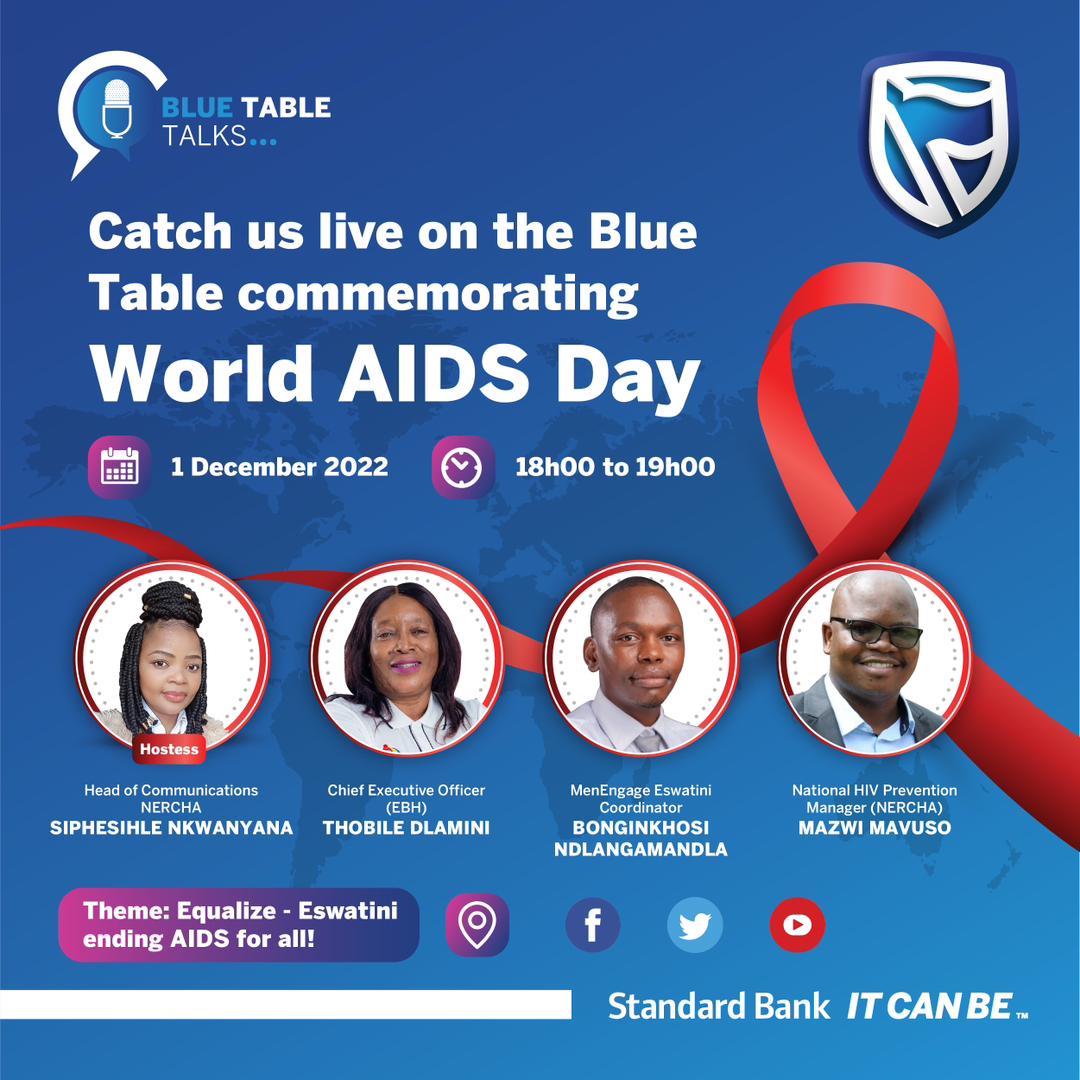MenEngage Swaziland was invited to be a panelist on the Standard Bank Blue Table Talks podcast on December 1, 2022. The podcast was created to commemorate World AIDS Day and the 16 days of anti-violence activism.
The session featured three panelists such as Mr. Mazwi Mavuso, NERCHA’s Prevention Manager; Ms. Thobile Dlamini, Eswatini Business and Health’s Chief Executive Officer; and Bonginkosi Ndlangamandla, MenEngage Eswatini’s National Coordinator.
The discussion was based on the increasing cases of new HIV infections, with Swaziland HIV Incidence Measurement Survey (SHIMS)3 (2022) data showing a 17% increase in prevalence among Adolescent Girls and Young Women (AGYW) aged 15-24, compared to around 3% for the same age group of men. HIV prevalence has increased among men aged 30 and up. According to the data, older men have sex with younger girls and women. The findings show that HIV spread is facilitated by socioeconomic vulnerabilities.
Further to that, over 150000 cases of GBV were reported in 2021, according to the national GBV surveillance system. Over 70% of these cases occur in the home, implying that more cases occur among people who know each other well, particularly intimate partners.
In Eswatini, intimate partner violence is a major source of HIV transmission. The 2021 study on the drivers of IPV in Eswatini identifies socialization, individual behavior, globalization, and institutions as the country’s drivers of IPV. The study discovered the following IPV causes, among others: Individuals’ lack of respect for one another, drug and alcohol use, direct and indirect causes, misunderstandings and disagreements in a relationship, patriarchy, ignorance of the law and disregard for human rights, and insufficient life skills
Engaging men and boys as allies in IPV prevention is critical if we are to end the crisis that Swaziland is experiencing. MenEngage Swaziland uses a variety of interventions to reach out to men, including workplace and community dialogues, TV and radio programmes, and capacity building for traditional and religious leaders.
Watch the session here: https://youtu.be/WwWxNhR9tV0

